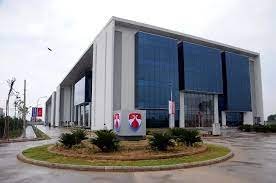Graduates can work as research scientists, photonics engineers, data analysts, or electronics specialists. Job opportunities span research institutions, telecommunications companies, electronics manufacturers, and government laboratories. They play a pivotal role in advancing technology and scientif
Career and Job Opportunities after completing B.Tech Engineering Physics
A B.Tech (Bachelor of Technology) in Engineering Physics is a unique interdisciplinary program that combines principles of physics with engineering applications. Graduates of this program possess a strong foundation in physics, mathematics, and engineering, making them versatile professionals in various sectors. Here's an overview of the career and job opportunities available to B.Tech graduates in Engineering Physics:
B.Tech In Engineering Physics Course Overview
• Duration: B.Tech in Engineering Physics is typically a four-year program.
• Eligibility: Candidates should have completed their 10+2 education with a strong background in science, with physics, chemistry, and mathematics as core subjects.
B.Tech In Engineering Physics Career Opportunities
1. Research Scientist: Engineering physics graduates can work in research and development roles in universities, research institutions, and industries. They may be involved in cutting-edge research projects, such as nanotechnology, materials science, or renewable energy.
2. Photonics Engineer: Photonics engineers work with optical and laser technology. They design and develop optical devices and systems used in telecommunications, medical imaging, and manufacturing.
3. Nuclear Physicist: Graduates can work in nuclear research and applications, which include nuclear energy, nuclear medicine, and nuclear safety. They may contribute to the development of nuclear reactors, medical imaging technologies, or radiation therapy.
4. Aerospace Engineer: Engineering physics graduates can work in the aerospace industry, designing and developing aircraft, spacecraft, and satellite systems. Their expertise in materials science and physics is valuable in this field.
5. Optical Engineer: Optical engineers specialize in designing optical systems, such as lenses and imaging devices. They are employed in industries like healthcare, defence, and telecommunications.
6. Renewable Energy Specialist: With a focus on sustainable energy sources, graduates can work in the renewable energy sector, designing and optimizing solar panels, wind turbines, and other green energy technologies.
7. Data Scientist/Analyst: Analytical skills acquired during the program can be applied in data science roles, where professionals analyze large datasets to extract insights and make data-driven decisions.
8. Biomedical Engineer: Engineering physics graduates with a strong background in physics and engineering principles can work in the biomedical field, designing medical devices, imaging systems, and equipment for healthcare.
9. Consultant: Graduates can become consultants, offering their expertise in physics and engineering to various industries, and helping organizations solve complex technical problems.
10. Entrepreneurship: Some graduates choose to start their own companies, focusing on innovative technologies and products that leverage their knowledge of physics and engineering.
B.Tech In Engineering Physics Job Responsibilities
• Conducting experiments and research to develop new technologies or solve complex problems.
• Designing and optimizing systems, devices, or processes.
• Analyzing data and using mathematical models to understand physical phenomena.
• Ensuring quality control and adherence to safety standards.
• Collaborating with multidisciplinary teams to achieve project goals.
• Providing technical expertise and solutions to real-world challenges.
B.Tech In Engineering Physics Salary and Growth Prospects
Salaries for B.Tech graduates in Engineering Physics can vary depending on factors such as location, industry, and experience. Those who specialize in high-demand fields like photonics or renewable energy may command higher salaries. With experience and expertise, opportunities for career advancement and higher pay scales become available.
 4 Years
4 Years
 Under Graduate
Under Graduate
 Engineering
Engineering
 Full Time
Full Time



 back
back

